|
Centrip Editorial Board
Experience Authentic Japan at Gero Onsen Gassho Village

Gero Onsen is one of Japan's three most famous hot spring resorts and is a must-visit destination when traveling in the Chubu region. If you've ever been to a Japanese hot spring, you'll know they are centered around hot spring inns and restaurants, offering limited entertainment. However, this time, we're breaking that notion. Just a 6-minute bus or cab ride from Gero Station lies Gero Onsen Gassho Village, where you can make local souvenirs and enter a real Gassho-style house.
Gero Onsen Gassho Village
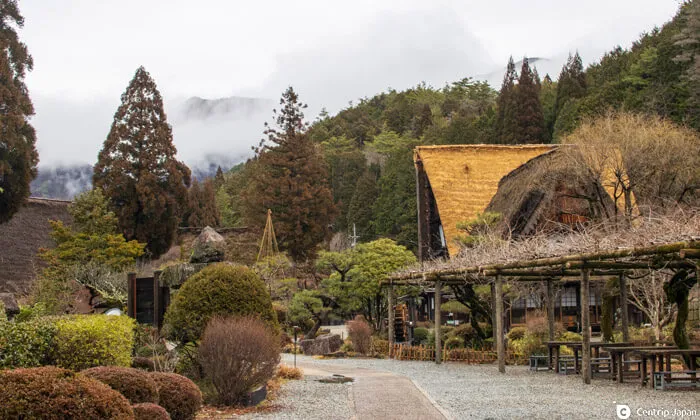
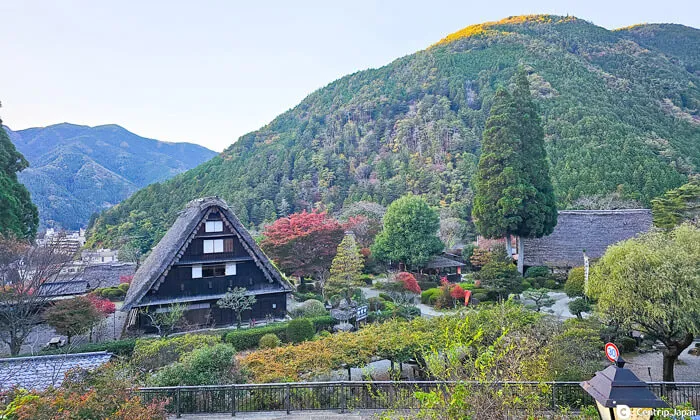
Gero Onsen Gassho Village is an outdoor museum. With the construction of a dam, many houses in the Gassho-style village required relocation to preserve their valuable cultural heritage, which resulted in Gero Onsen Gassho Village. Among the ten Gassho-style houses here, 90% were relocated from the popular Shirakawa-go area, allowing visitors to see authentic Gassho-style architecture without traveling to Shirakawa-go.
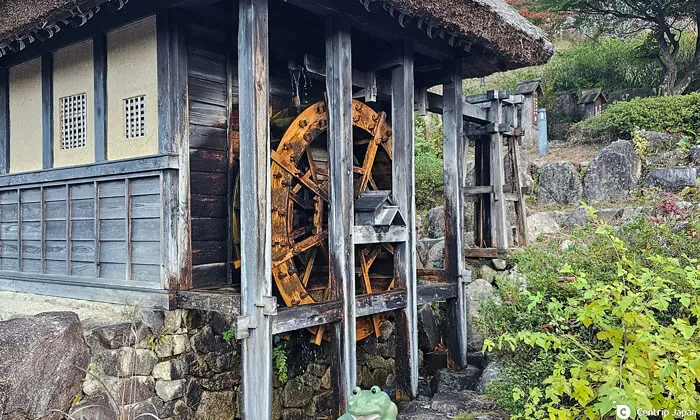 Village Water Wheel
Village Water Wheel
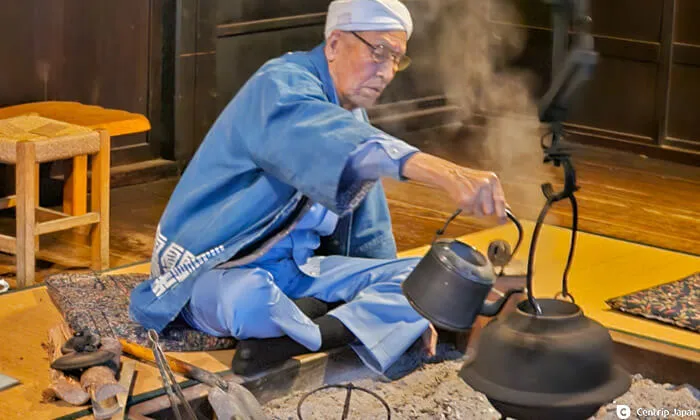 On weekends, fires are lit in the irori hearths of the Gassho-style houses, recreating the past
On weekends, fires are lit in the irori hearths of the Gassho-style houses, recreating the past
The village is spacious and recreates the lifestyle of people who once lived in the mountainous regions. With numerous Gassho-style houses, water wheels, and shrines, you'll feel like you've stepped into the past, to a small village in old Japan. Visitors can tour the Gassho-style houses, savor local cuisine, and experience traditional Japanese crafts at the Hida Workshop. The various hands-on activities include making Sarubobo dolls, washi papermaking, pottery painting, and pottery making.
Sarubobo making is recommended for foreign tourists as they can take their creations home on the same day. Other activities require shipping, making them ideal for residents of Japan. Now, let's look at two of the experiences I tried.
Sarubobo Making Experience
Sarubobo is a talisman from the Hida region (Takayama and Gero). Many Sarubobo are red dolls primarily used for praying for safe childbirth, children's growth, and family prosperity. However, nowadays, they have evolved into various colors, each carrying different meanings. For instance, yellow symbolizes wealth, green represents health, purple signifies longevity, and blue is for academic success.
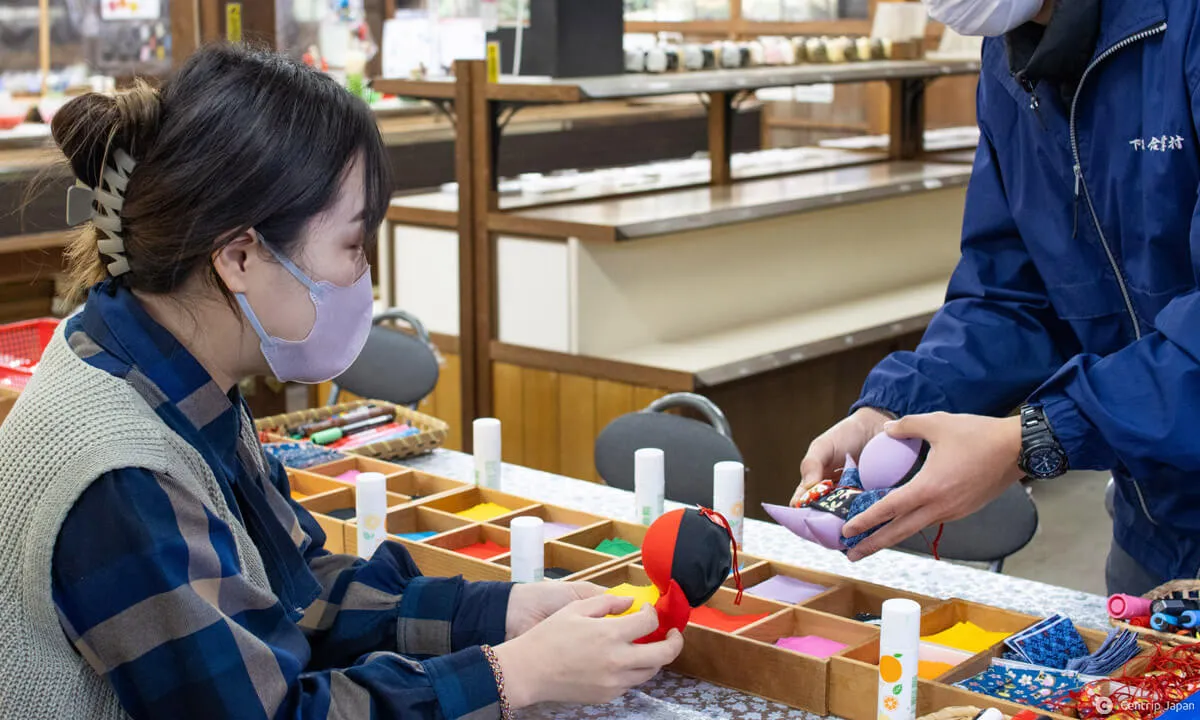 Staff teaching how to make Sarubobo dolls
Staff teaching how to make Sarubobo dolls
At Gero Onsen Gassho Village, you can participate in the Sarubobo Making Experience for ¥1,800, where you can create your own Sarubobo in just 15 minutes. (Regular colors ¥1,800, Gold/Silver ¥2,100).
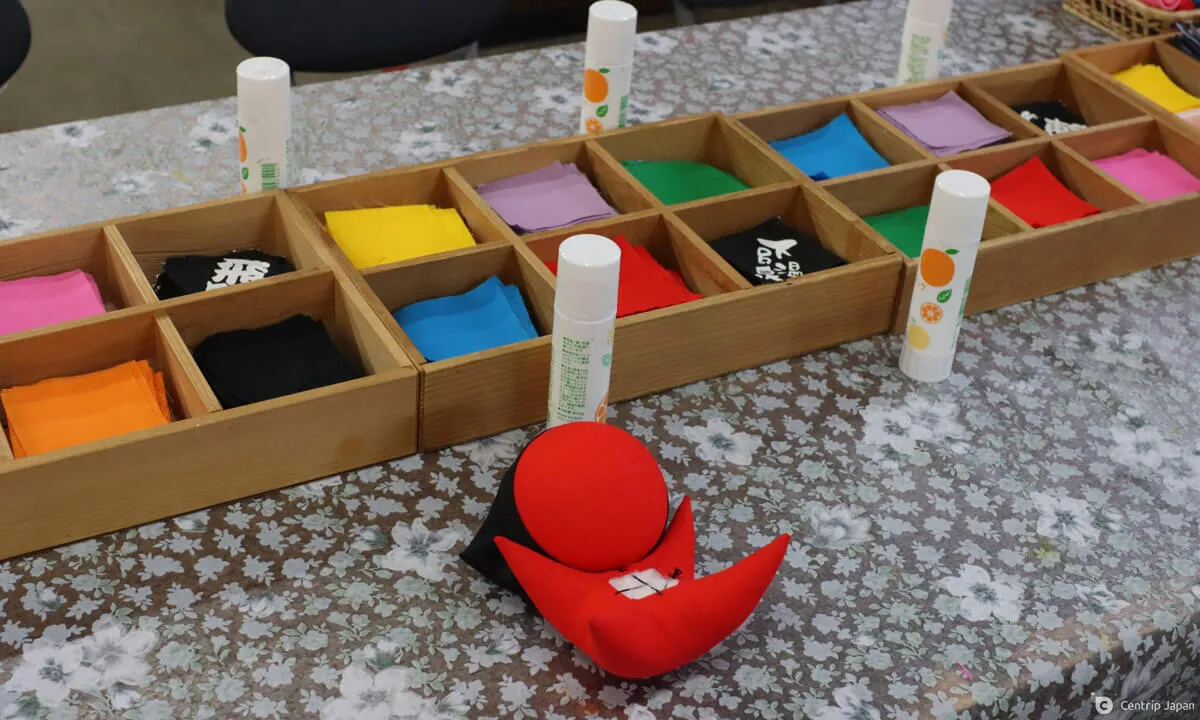 I chose the most typical red Sarubobo
I chose the most typical red Sarubobo
First, select a nearly completed Sarubobo. At this stage, you only need to choose the color.
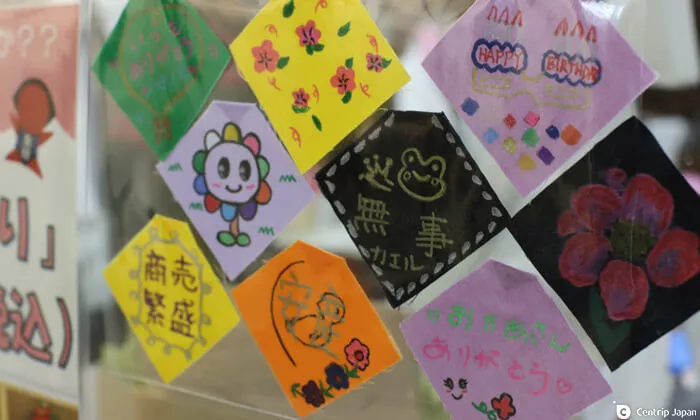 Design your original apron
Design your original apron
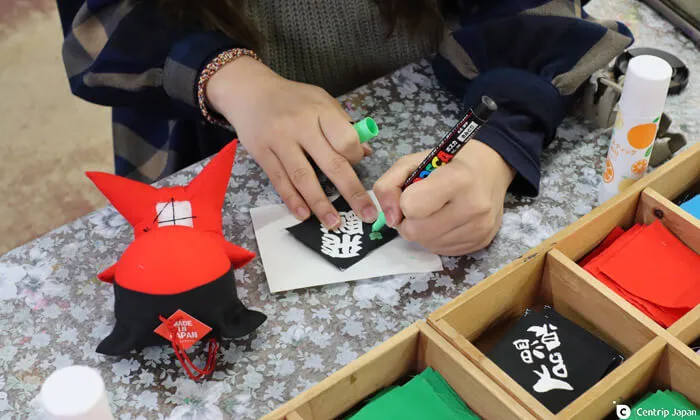 You can also use aprons with inscriptions to customize
You can also use aprons with inscriptions to customize
Next, choose an apron to attach to the Sarubobo's belly. You can choose a plain one to design freely or select one with typical inscriptions like Gero Onsen or Hida and paint or draw on it.
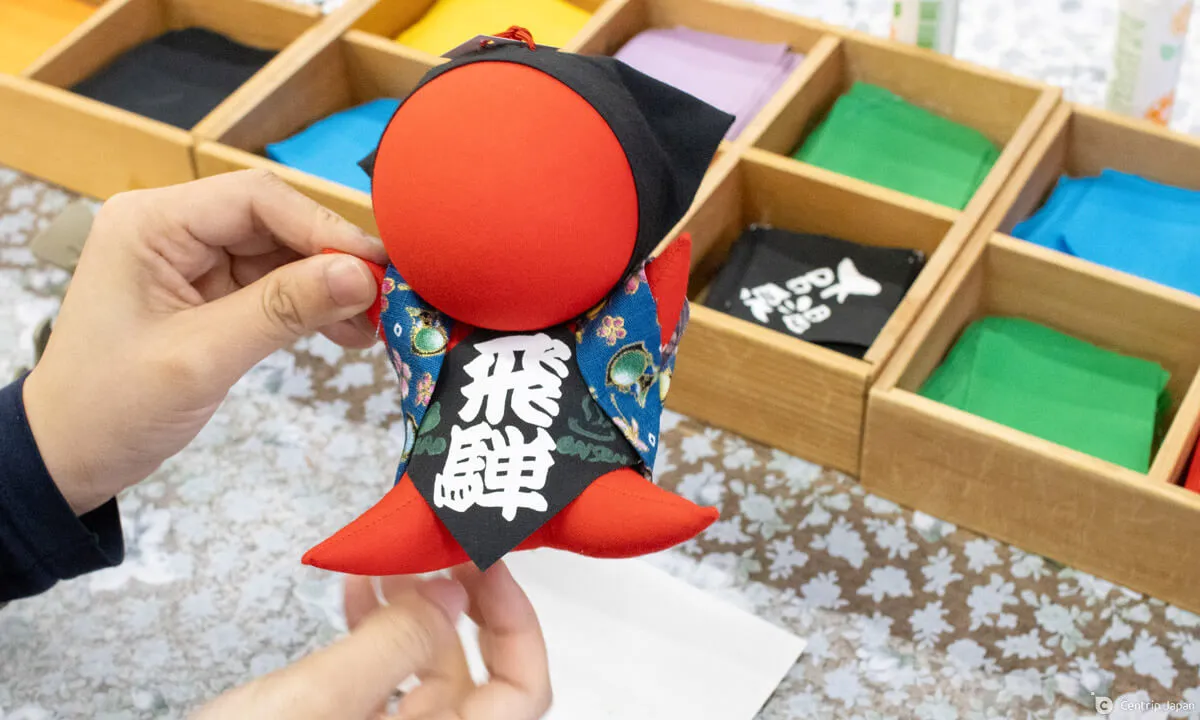 There are various styles of aprons available
There are various styles of aprons available
Dress it in your preferred Chanchanko (a traditional Japanese sleeveless vest).
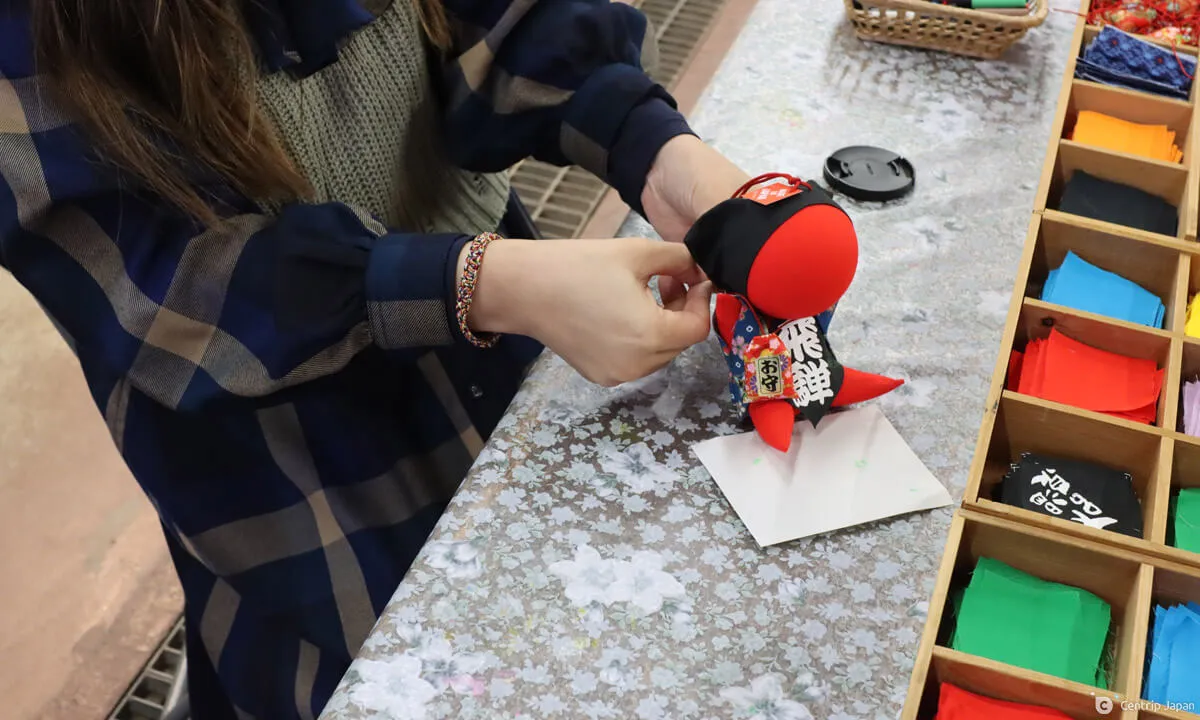 Attach a golden amulet. Other colors are also available
Attach a golden amulet. Other colors are also available
Finally, attach a cute amulet, and it's complete!
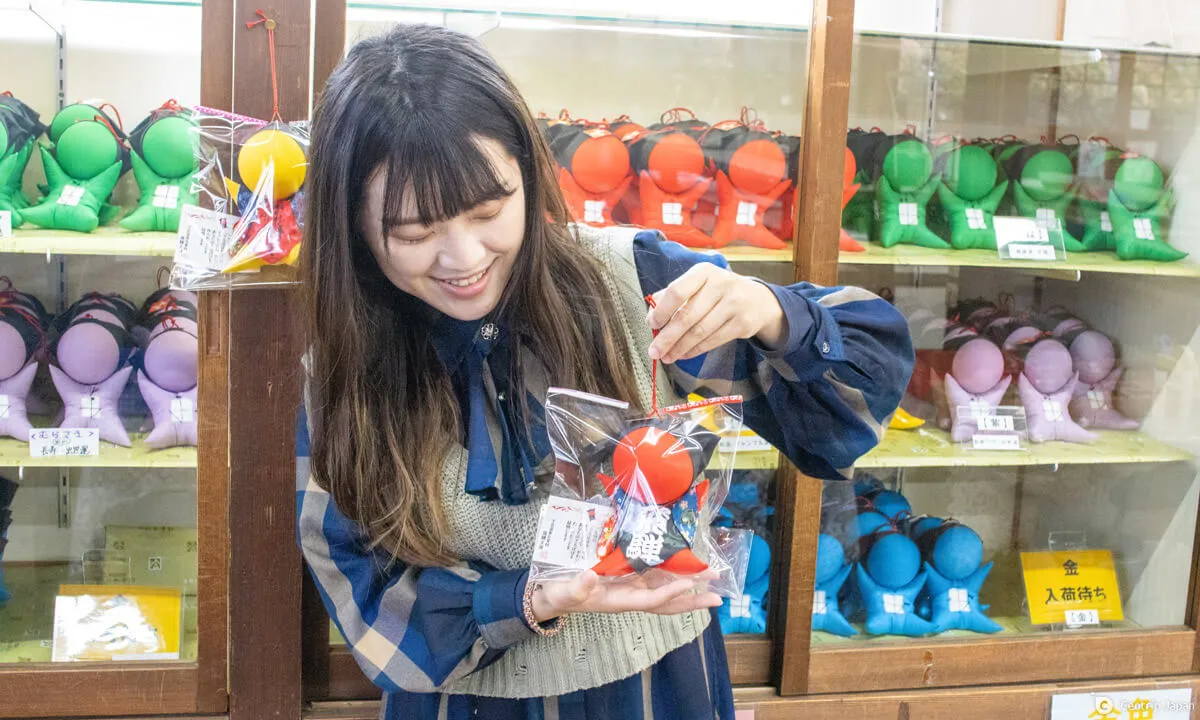 All done!
All done!
You'll receive a certificate of completion from the Hida Workshop when it's complete.
Pottery Painting Experience
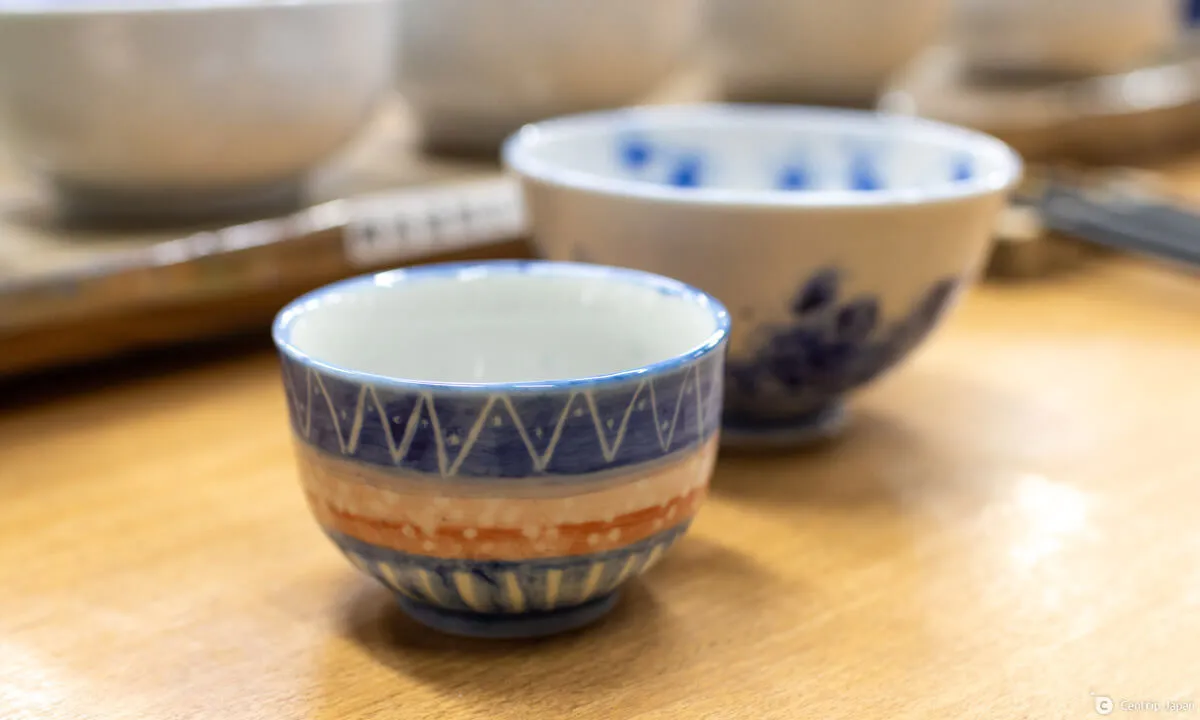 Exhibit Pieces
Exhibit Pieces
Another intriguing experience is the pottery painting session. It takes approximately 30 to 40 minutes, with prices ranging from ¥1,300 onwards (depending on the pottery piece; shipping fees are separate). Please note that it takes about two months from the experience to the delivery of the finished product, and shipping is only available within Japan, so travelers from overseas need to consider this.
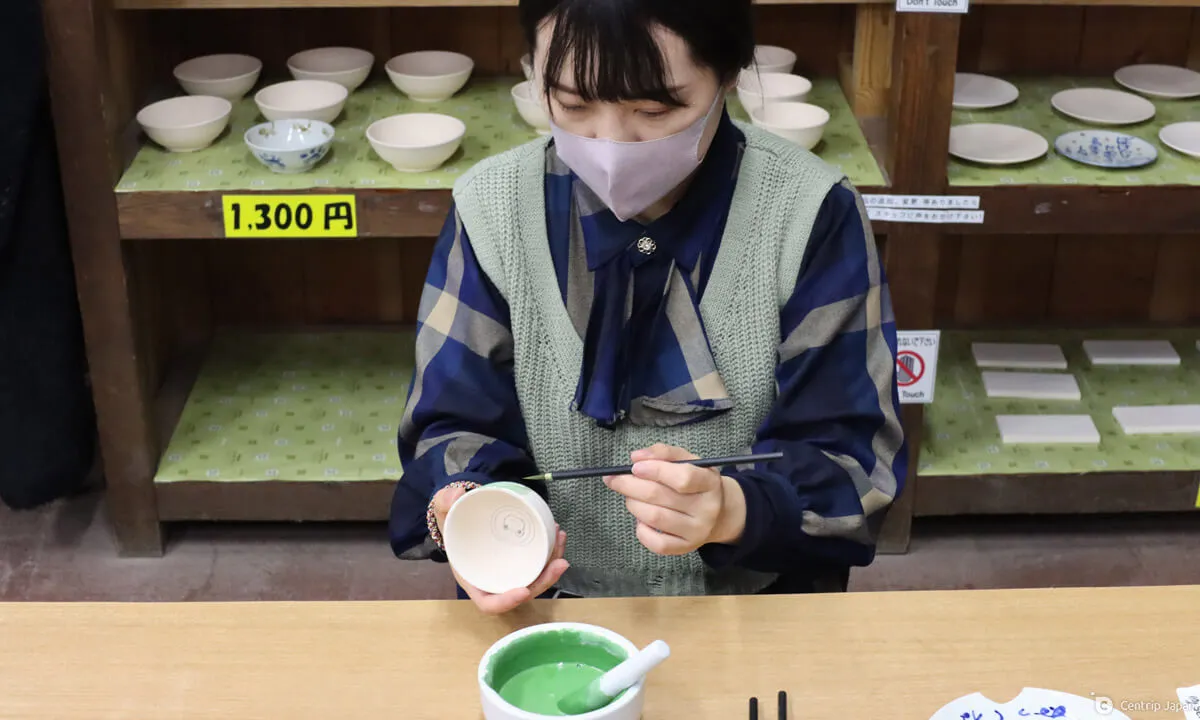 Selecting the pottery to paint
Selecting the pottery to paint
Hida Workshop offers a variety of ceramics, such as teacups, bowls, and plates. I chose a sencha bowl.
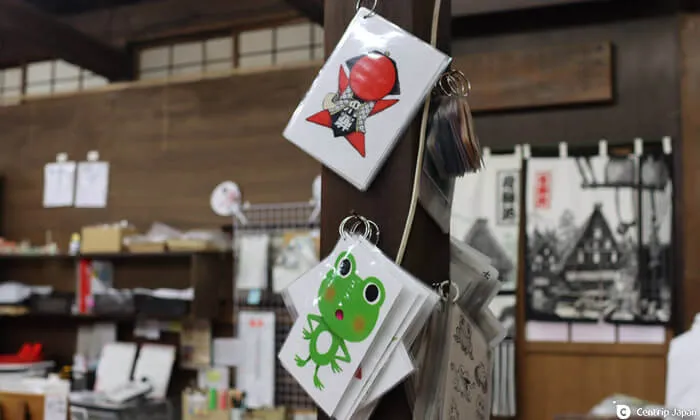 There are plenty of reference drawings available
There are plenty of reference drawings available
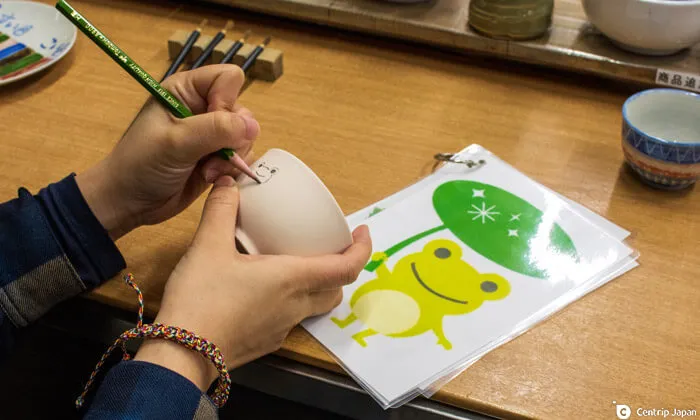 I chose a frog design
I chose a frog design
Next, sketch the design on the pottery using a pencil. If you're struggling with ideas, the workshop provides various reference drawings. Since the Japanese pronunciation of Gero sounds like the croaking of a frog, the representative character of Gero is a frog. There are many frog reference drawings here, making painting frogs a highlight of the trip.
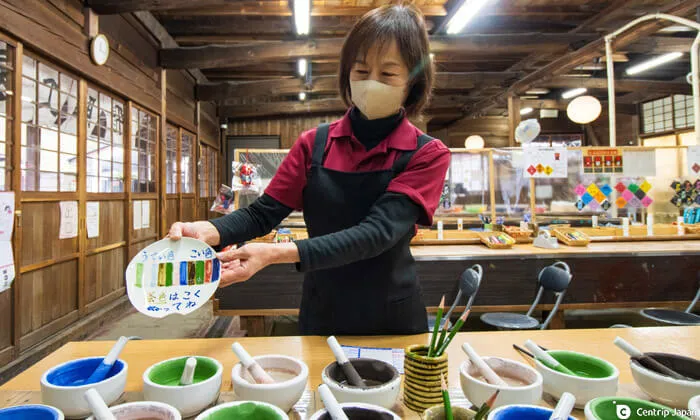 Colors appear differently with thin and thick layers
Colors appear differently with thin and thick layers
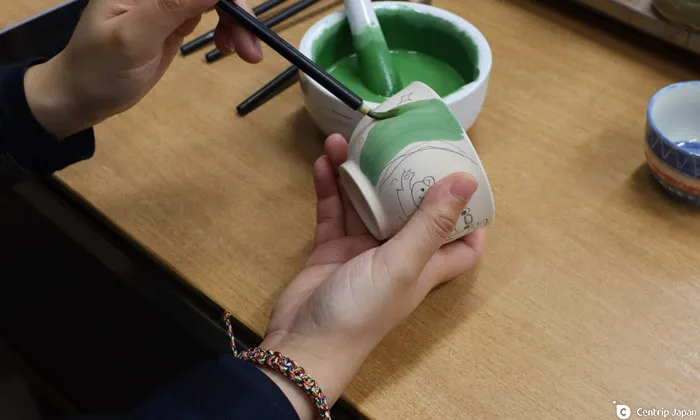 The applied color absorbs quickly into the clay
The applied color absorbs quickly into the clay
After sketching, pick your preferred colors and paint. The outcome varies with thin and thick layers. Hida Workshop provides examples of each color after firing for reference. In my experience, since the brushes don't allow for fine lines, using simple blocks of color rather than intricate lines tends to look better. (I wanted to draw in a comic style but found it challenging).
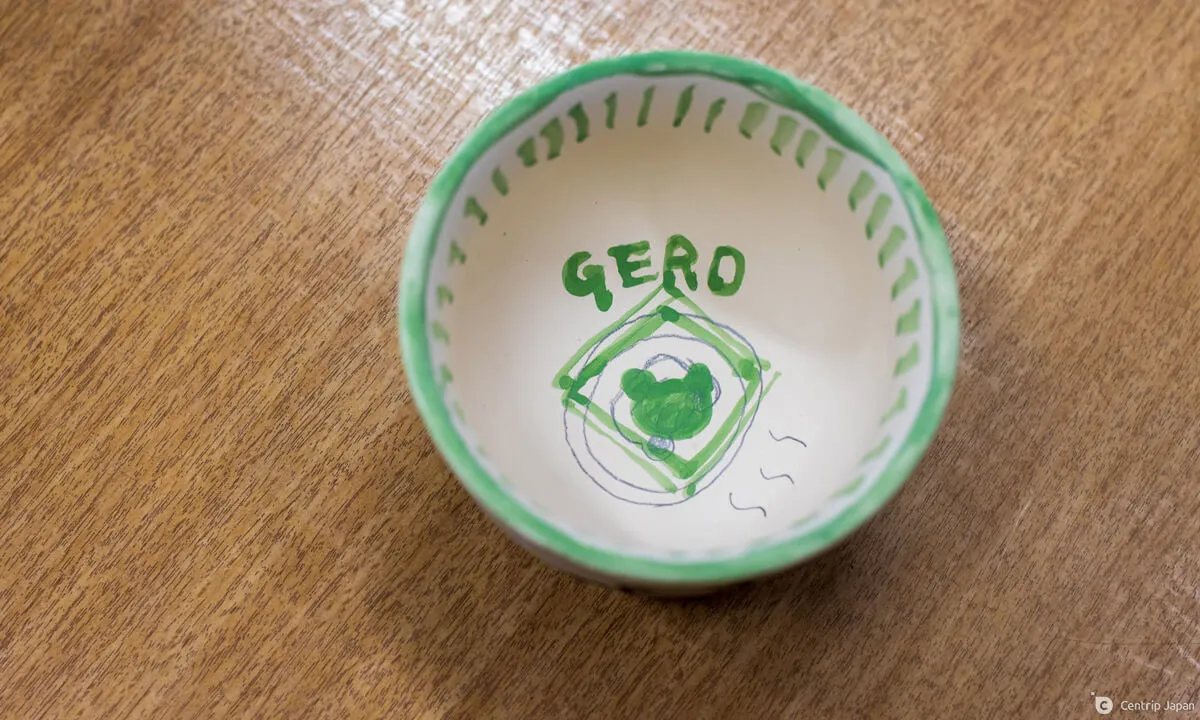 Pencil marks disappear after firing, so there's no need to erase them
Pencil marks disappear after firing, so there's no need to erase them
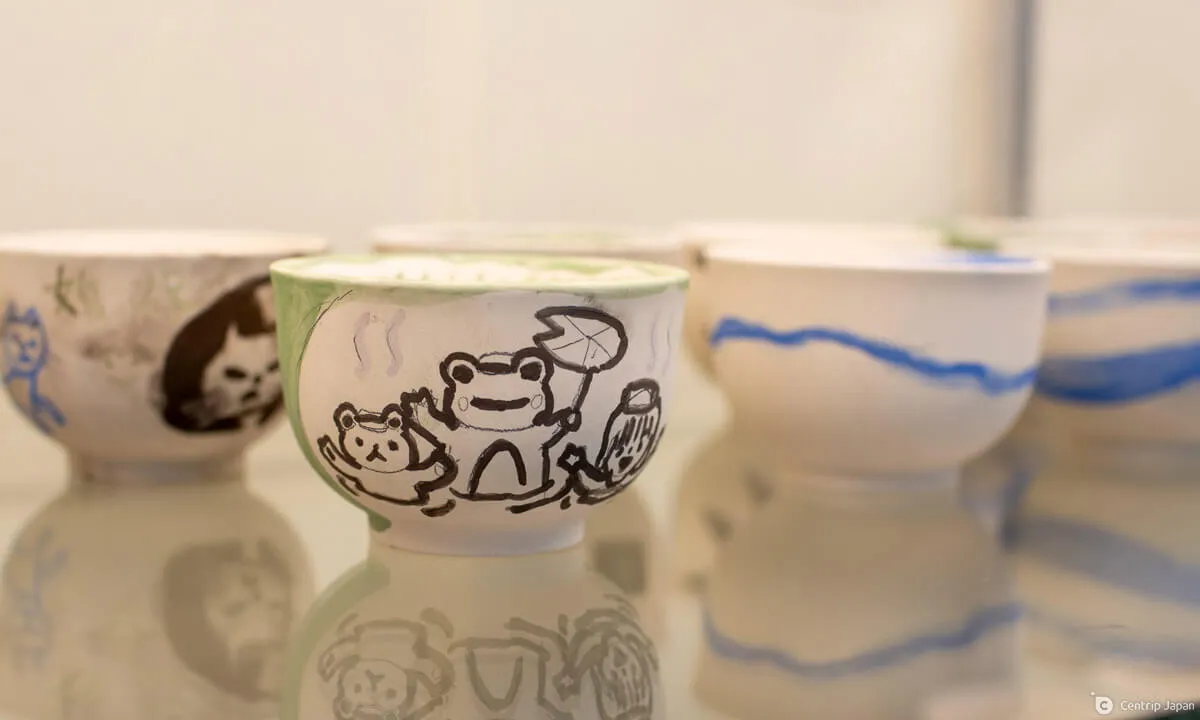 Finished! Waiting for firing
Finished! Waiting for firing
Once done, hand over your creation to the staff and wait for firing. Don't forget to provide your shipping details to receive your masterpiece.
Other Enjoyable Activities at Gero Gassho Village
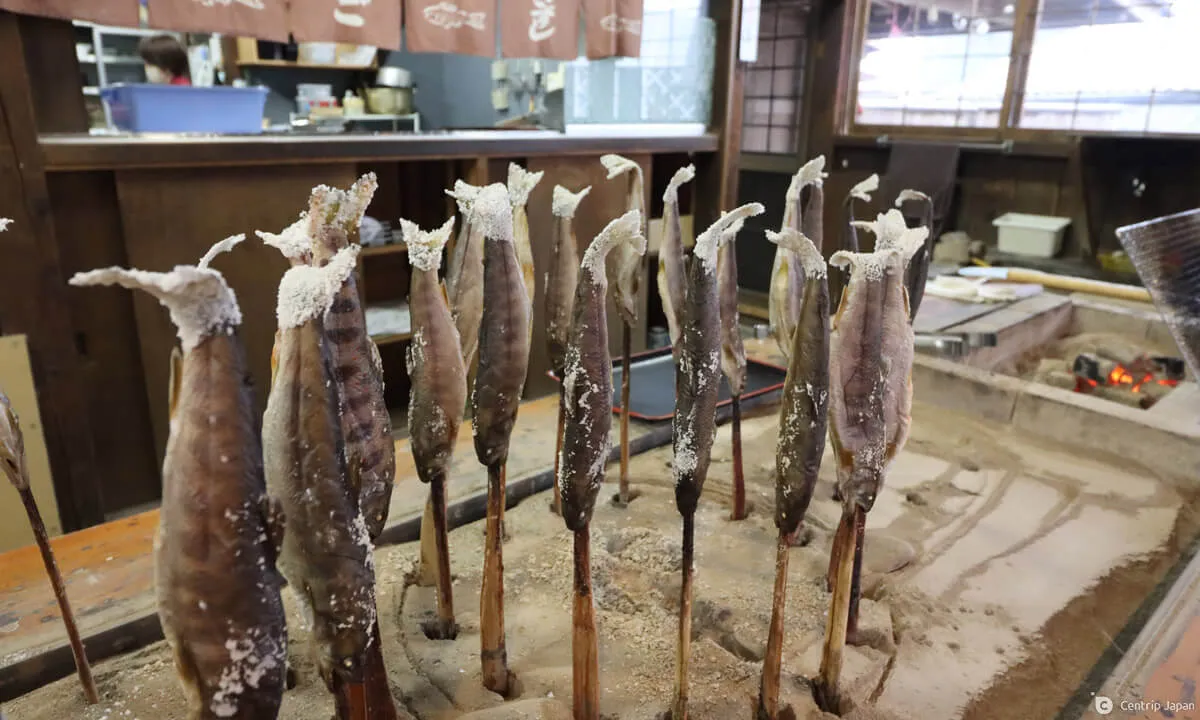 Enjoy charcoal-grilled fish at Restaurant Ichikura
Enjoy charcoal-grilled fish at Restaurant Ichikura
Gero Gassho Village boasts three restaurants offering noodles, grilled fish, and desserts. Ichikura, a grilled fish restaurant, is a traditional establishment where whole fish skewered on bamboo sticks are grilled over charcoal, allowing you to savor the authentic flavors of old Japan. Especially in the summer, you can indulge in the famous Gifu specialty of charcoal-grilled fish, satisfying your appetite and Instagram feed.
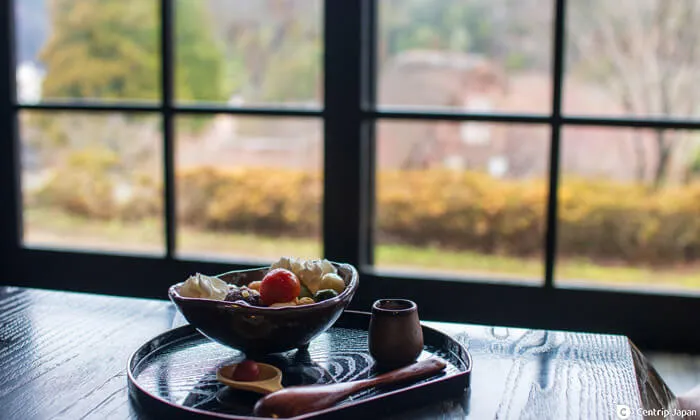 Signature dessert Banko Anmitsu
Signature dessert Banko Anmitsu
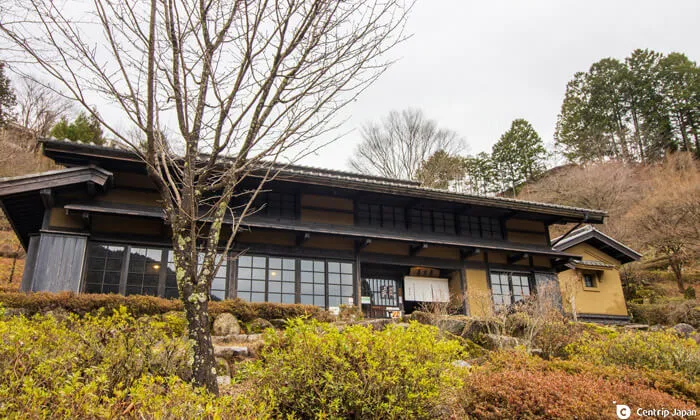 The Masuda-zukuri building is unique to the Gero area
The Masuda-zukuri building is unique to the Gero area
The building of the sweets shop Banko-an showcases the unique architectural style of Gero, known as Masuda-zukuri, characterized by low-rise houses with triangular roofs. Enjoying traditional Japanese sweets while gazing at the tranquil surroundings of Gero from this historically charming mansion will surely bring peace to your heart.
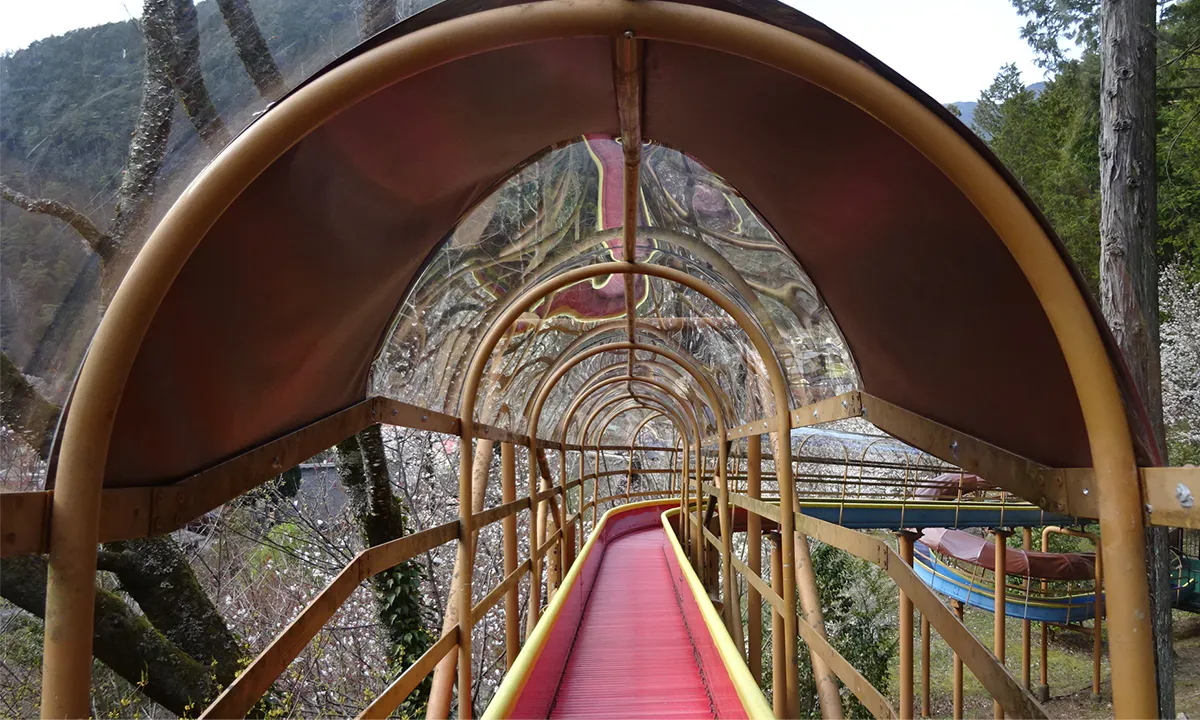 An ultra-long slide
An ultra-long slide
For an exhilarating experience, there's a 175-meter-long slide within the village. This slide utilizes the slope of the mountain, allowing you to admire the beauty of Gassho Village from various angles as you slide down. If you hear screams echoing through the village, it's a sign that someone is enjoying the slide! (The slide costs ¥100 per ride and is suitable for ages three and above).
Access to Gero Onsen Gassho Village
 Opposite JR Gero Station is the bus stop
Opposite JR Gero Station is the bus stop
From JR Gero Station to Gero Onsen Gassho Village, it's about a 20-minute walk. There are many sloped roads, so be prepared for a challenging walk. You can also take the Nohi Bus to Gassho Village, which takes about 6 minutes. Since the bus runs approximately once per hour, we advise you to plan your schedule accordingly.
Wrap-up
Gero Gassho Village, conveniently near the station and the Gero Onsen area, offers opportunities for exploration and hands-on experiences as an outdoor museum. Adjacent to the station, the Idewa Asaichi morning market operates from 8:00 to 12:00, providing a glimpse into the daily lives of locals. If you've got extra time, try visiting the market alongside Gassho Village is recommended for a truly immersive experience.

